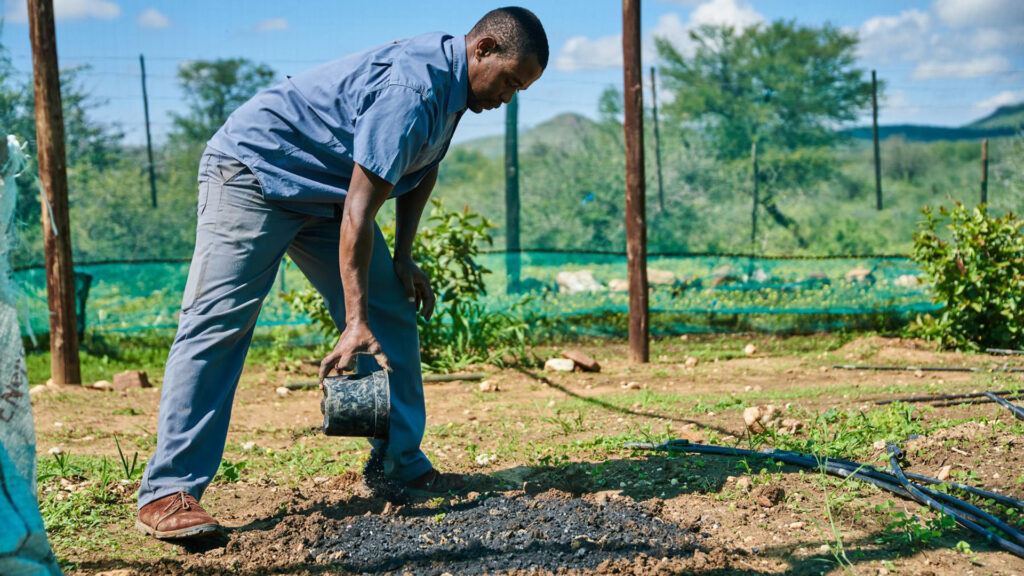By Carlos Roa, VoLo Foundation
Jason E. Dodier is a circular economy advocate and specialist in carbon removal acceleration and financing. His mission focuses on empowering project developers worldwide to meet ambitious waste-to-value, carbon sequestration and biodiversity goals set by the global climate agenda.
As the cofounder of GRAIN Ecosystem, he aims to “enable producers, investors and equipment suppliers to grow and deploy decarbonization projects faster and easier than ever before.”
VoLo Foundation invited him to hold a Q&A session to learn more about a circular economy. His transformative approach to production and consumption – which aims to minimize waste, reuse resources and maximize efficiency – is a powerful step toward a deeper understanding of this mindset.
Can you explain for us what a circular economy is?

For me, waste is only waste if we discard it. As I see it, we need to redesign the entire system. It’s not just about closing the loop, but about designing out waste and pollution from the very beginning.
We repurpose by-products from sawmills, sugar mills and food processing plants, using them to benefit society and create new products. One of our clients operates a sugar mill and an award-winning distillery. They process byproducts to produce biochar, which can be used as an additive in concrete, steel, water filtration or simply to enrich soils.
Circular economy is inspired by natural cycles. That’s really what the future is all about.
What are the obstacles to the widespread adoption of circular economy practices?
There is a perception that these approaches are costly and don’t yield the best returns. Industries like data centers and AI, which drive future technology, are resource-intensive and tend to follow a linear consumption model.
Additionally, resistance to change is significant, especially with large companies. In 2022 alone, the U.S. oil and gas industry spent over $130 million on lobbying groups. Furthermore, the weak enforcement of environmental laws and the lack of standardization are major issues. Supply chains are complex, and many industries still rely on a linear production model.
All these factors create substantial barriers to implementing circular economy practices effectively.
How can we fight climate change by creating a circular economy mindset?
Education is crucial. Currently, the U.S. uses around 1 billion pounds of pesticides per year. Glyphosate, one of the main ingredients in these pesticides, damages DNA and causes cancer.
If we can educate people on these issues and raise awareness of how circular economy can improve traditional linear processes, we will see significant improvements. But we need people to come together, share economic models and consider environmental justice.
We are a capitalist economy. Capitalism should also be based on efficiency and resource optimization. How can a circular model provide better results in the economic context?
I recently read an article in the Financial Times about the concept of “nature positive.” Global GDP is around $80 trillion, and nature makes up half of that. To meet the needs of both people and the planet, we need capitalism to evolve.
A circular model, tied to frameworks that regenerate natural systems rather than depleting them, can drive more sustainable economic growth. Many companies are already embracing this by monitoring and managing their supply chains, leading to both economic benefits and support for biodiversity.
How can a circular economy support vulnerable populations, both from an environmental and economic perspective?
One major way is accountability. You saw this at last year’s COP28 with the establishment of the Loss and Damage Fund. We must ensure that commitments like these are followed through.
A circular economy is a powerful tool to address systemic inequalities, especially in areas suffering from environmental degradation. Companies can invest in technology and processes in communities that reduce emissions, particularly in sectors such as textiles, electronics, and agriculture.
Simple actions like replacing kerosene lamps with microgrids and educating people about LED lights make a big difference. Programs like these can foster sustainable development, create green jobs and ultimately also benefit businesses, as young people increasingly want to work for companies committed to sustainability.
Carlos Roa is senior press and PR director for VoLo Foundation. VoLo Foundation is a financial supporter of The Invading Sea. Banner photo: An icon representing the circular economy (iStock image) This piece was originally published at https://volofoundation.org/news/circular-economy-brings-energy-and-economic-efficiency-together/.
Sign up for The Invading Sea newsletter by visiting here. To support The Invading Sea, click here to make a donation. If you are interested in submitting an opinion piece to The Invading Sea, email Editor Nathan Crabbe at ncrabbe@fau.edu.



